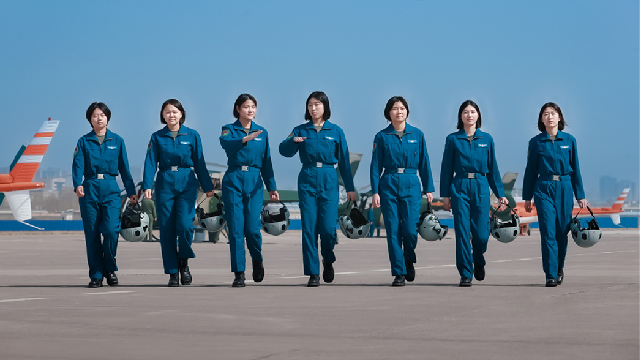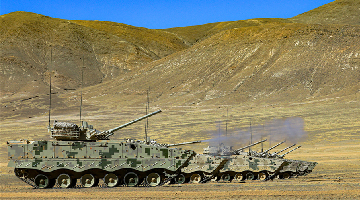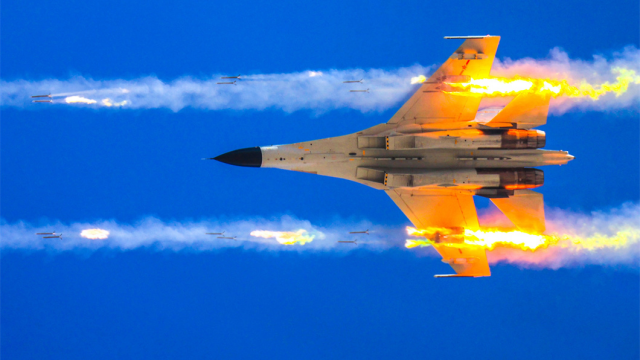TOKYO, Nov. 12 (Xinhua) -- The U.S. military's top officer expressed his intentions on Tuesday to encourage South Korea not to pull out of an intelligence sharing pact with Japan.
Following discussions with Japanese Prime Minister Shinzo Abe, Chairman of the U.S. Joint Chiefs of Staff, Gen. Mark Milley, said the issue would be raised when he visits South Korea on Wednesday.
"It'll be a point in discussion there in South Korea. So we want to try to resolve that issue before it expires," Milley told reporters after meeting with Abe.
Milley added that he and the Japanese prime minister had talked "a little bit" about the General Security of Military Information Agreement (GSOMIA), which is set to expire on Nov. 23.
The United States, for its part, has asked South Korea to reconsider its decision not to renew the agreement. South Korea's decision was made amid a bitter bilateral row with Japan over wartime labor issues that have spilled over into a tit-for-tat trade spat.
GSOMIA is a bilateral military intelligence-sharing accord signed between both countries in November 2016.
The accord comes up for renewal each year, but can be cancelled by either party giving notice by Aug. 24, which South Korea has done. The GSOMIA pact between both sides has enabled the two neighbors to share military information.
Seoul said it was cancelling the pact as a rift between Japan and South Korea widened to see bilateral ties sink to their lowest level in recent years.
Ties became frayed after South Korea's top court last year ordered Japanese firms to pay compensation to forced laborers during Japan's 1910-1945 colonial rule of the Korean Peninsula.
Japan claimed the rulings are not in line with international law and run contrary to the foundation of friendly and cooperative relations between the two neighbors since the 1965 normalization of diplomatic ties.
Japan maintains the matter of compensation for wartime labor was "finally and completely" resolved under the pact.
As tensions escalated between both sides, Japan hit back with tighter export controls on some materials used in high-tech products by South Korean firms, including some essential for use in smartphone displays and chips, mainstays of South Korea's tech-forward economy and integral to some key supply chains that flow from Japan and through South Korea onward.
With the diplomatic gulf widening between the two neighbors, Japan went on to remove South Korea from its "whitelist" of nations entitled to simplified export control procedures, with the removal of South Korea from the list marking the first time Japan has revoked a country's trusted trade status.
Seoul had been on the "whitelist" since 2004 and had been guaranteed preferential treatment in terms of importing certain products from Japan.
South Korea retaliated by taking Japan off its own "whitelist" of trusted trade partners and announced tighter restrictions on certain imports from Japan, including coal ash and some waste recycling materials.
South Korea followed up by announcing its decision to scrap GSOMIA, with Japan, on exchanging classified military information, as the tit-for-tat dispute escalated.
When asked Tuesday if he was optimistic about Seoul reversing its decision on the pact, Milley said, "We'll find out, we'll see."
Milley is visiting Tokyo on his first overseas trip since becoming chairman of the Joint Chiefs of Staff in October.









